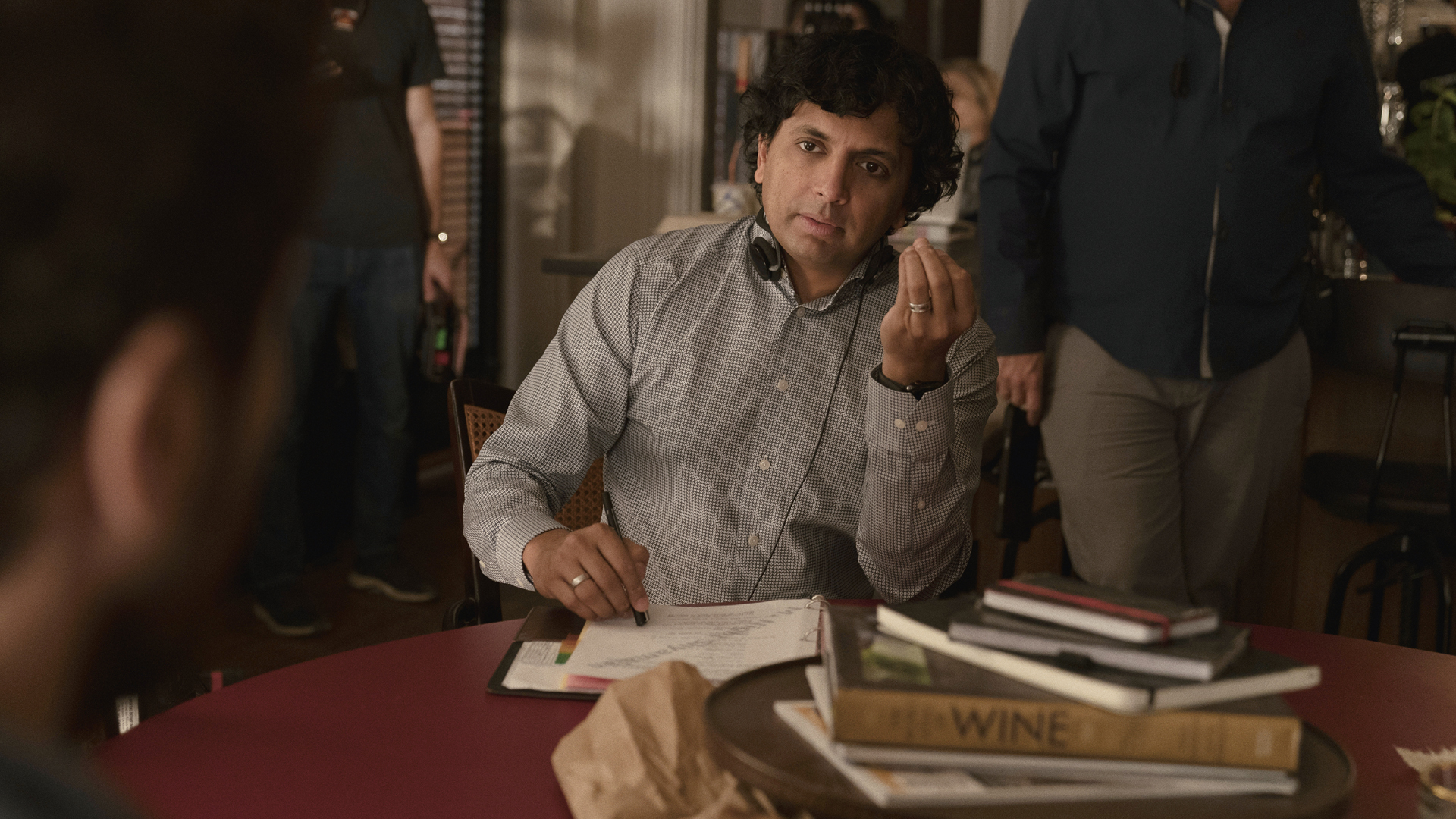In Servant, the new TV series from notoriously twisty director M Night Shyamalan, a couple are devastated by the loss of their baby son, Jericho. To help them cope, the mother, Dorothy, adopts a lifelike doll, and even hires a nanny to look after it. But as is inevitably the case with Shyamalan, the man behind The Sixth Sense and Unbreakable, all is not what it seems. He talks about how Servant taps into our greatest fears and what fills the gap when religious faith is gone.
Our biggest nightmares
Our worst fear is something happening to our children. That’s a very primal fear inside of us. Everyone can relate even if they don’t have kids, that sense that you’re supposed to be the protector. When you have children, you panic when they don’t answer the phone or they’re not where they’re supposed to be at a certain time. All your nightmares play out instantaneously. The second kind of urban nightmare is that you bring someone into the intimacy of your home… and they maybe aren’t who they say they are. Servant being about a woman and a family that’s not accepting what happened feels very real, like a defence mechanism, a survival tactic they’re using to get through the day. That’s very meaningful to me, how do we accept the bad things that happen to us, and if these things can happen is there a God?
The grotesque fun house we live in
Setting Servant in a very materialistic, hedonistic world of money and wine and food and brownstones and events – it’s having faith in the superficial and they’re not dealing with the personal, intimate tragedy that has occurred. Dorothy keeps up the veneer that everything is OK. Meanwhile, it’s not OK. But if you pretend enough then it’s real. All of that certainly speaks to the political climate that we’re in and our general obsession with curated images of ourselves – maybe not the most honest portrayal of our lives on social media. It feels grotesque that our society is kind of a fun house right now. This family could be a metaphor for all of us needing something to believe in. And they so desperately want to believe in something. If they’re given a narrative, they’re going to grab it and say, well, things aren’t as bad as we thought they were because we have this narrative to hold on to. Seeing the darkness invokes a conversation about light in your life. They are always tied.









